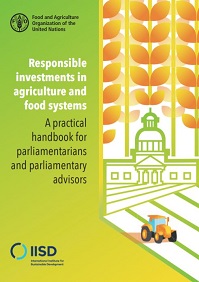Interrogating large-scale land acquisition and its implications for women’s land rights in Cameroon, Ghana and Uganda
Large scale land acquisitions (LSLAs) impact women: loss of rights and access to land, water resources, fuel wood, adequate shelter, compensation and livelihood. The study looks at three sub-Saharan African countries (Cameroon, Ghana and Uganda) each having different land tenure regimes. Since land is vital for the survival of rural dwellers especially women, the study recommends that laws and policies governing the process of LSLA stress a mandatory participatory approach that includes women. There is urgent need to revalorize national laws to mainstream women’s land rights.



